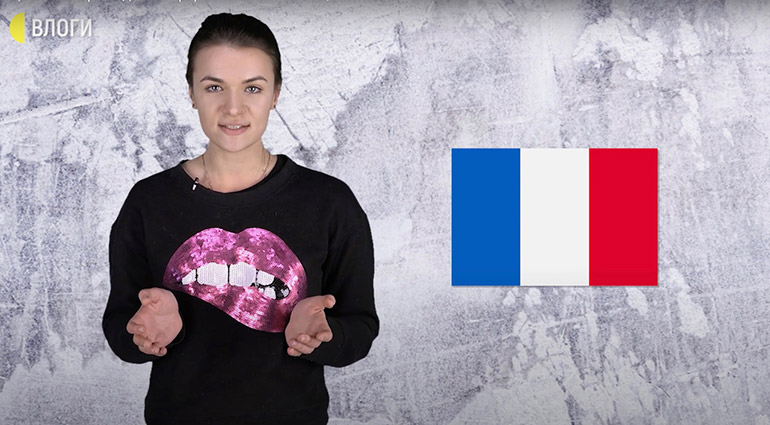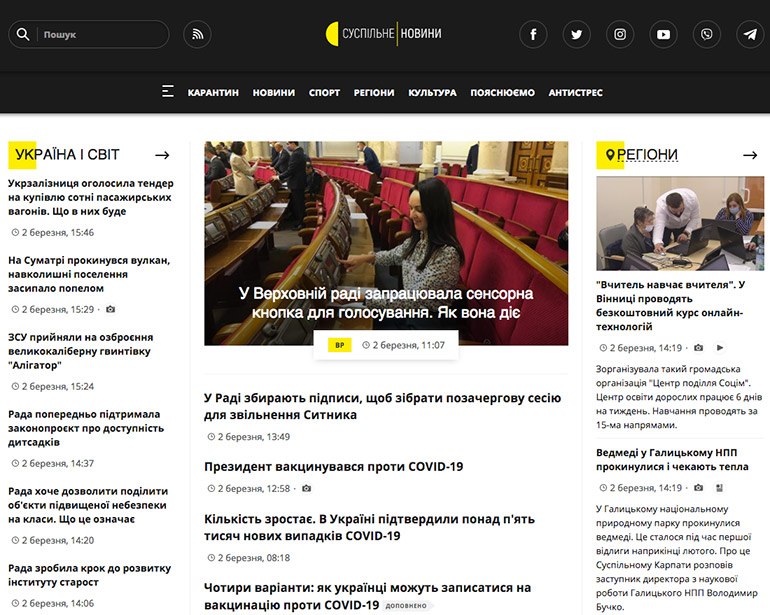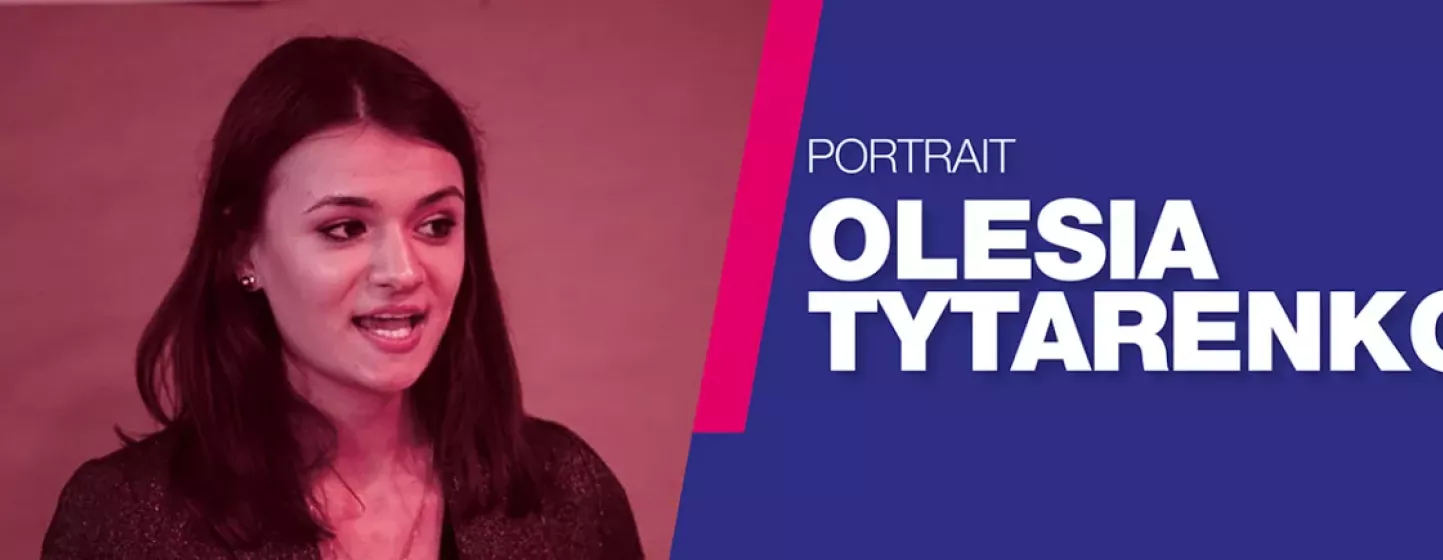Olesia Tytarenko, the future of independent journalism Ukraine
Olesia Tytarenko is a former RFI correspondent in Kyiv, Ukraine, now deputy news editor for UA:PBC (Suspilne), the Ukrainian public television that she hopes will embody the future of independent journalism in her country.
Profiled by Lou Mamalet.
Born in Ukraine into a family of doctors, Olesia Tytarenko nevertheless very early on chose another path for herself by turning to journalism. At the age of 16, while still at school, she was already covering cultural news as a freelance writer for a regional newspaper. She pursued this passion at the Taras Shevchenko National University of Kyiv where she obtained her BA in Journalism with First Class Honours. “I always had a particular interest in writing and literature-related subjects in school. I wavered for a long time between law and journalism, but my wish to express myself and help was stronger so I chose journalism.”
During her studies, she completed many internships in Ukrainian radios and televisions, in the parliamentary newspaper of Ukraine and some online media. As she was finishing her degree, a revolution broke out in Ukraine in November 2013, following the Ukrainian government's decision not to sign a long-discussed association agreement with the European Union. Three months of mass demonstrations, remembered as the Euromaidan revolution, led the then President Viktor Yanukovich to flee to Russia after shootings and the death of several dozen demonstrators. A few days after the establishment of a new government in Kyiv, Russia militarily invaded Crimea and annexed the peninsula after a referendum not recognised by the international community, triggering a major diplomatic crisis.

“I discovered real field journalism”
A political and personal turning point for this fledgling journalist who then had to learn how to do field journalism in an emergency: “Before the revolution, Ukraine was a peaceful country and we young journalists were not ready to cover such events, but rather used to official visits or cultural exhibitions. When war broke out in the Donbas, we all had to retrain very quickly. I did not know how to work in these conflict conditions, I had to learn to write quickly, to bring back quality sounds and images without technical equipment. It was there that I discovered real field journalism in place of the one I was doing in my little bedroom.”
Determined to broaden her horizons, Olesia left to complete her master's degree in France, where she studied the administration of cultural activities at Toulouse 1 University Capitole. At that time, her interest shifted to legal journalism and international affairs.
Back in Ukraine, she became the correspondent in Ukraine for the Russian-language newsroom of Radio France Internationale (RFI), where she regularly covers legal cases such as that of former Ukrainian president Petro Poroshenko: “I noticed that I lacked some knowledge about legal procedures and stakeholders and I had to find ways to fill those gaps.”
It was then that she applied to the 6-month training course in "Justice Journalism" organised by CFI in Ukraine in the framework of Pravo Justice, a EU supported project backing the reform of justice in Ukraine. This training programme allows emerging justice journalists to participate to workshops, masterclasses. They also meet and discuss with specialists in the judicial system and media professionals in order to better understand the system from within: “I remember having met very interesting speakers such as the representative of the High Anti-Corruption Court of Ukraine or the French journalist Pascale Robert-Diard, who writes on justice at the newspaper Le Monde. Now, when I cover court cases, I look at them not only from a journalistic perspective but also as an expert who understands the system and the role of a trial as a whole.”

Today, Olesia works as deputy news editor for UA:PBC, also called Suspilne (Public), in Ukrainian language, the national public broadcaster in Ukraine, a large television, radio and digital media group undergoing an important reform since 2017, as UA:PBC is in the process of establishing itself as the Ukrainian equivalent of the BBC. “In Ukraine, the situation for journalism remains complicated even though things have improved since the Revolution of Dignity (Euromaïdan). Most of the media is owned by oligarchs whose interests are to create their own financially profitable media reality. At Suspilne, we have a great team of editors who have already worked for foreign media or have a significant experience in quality journalism. I believe it is important that the public understands the importance of journalists and their protection. As for politicians, they must realise that journalists are not propagandists in the pay of those in power.”
